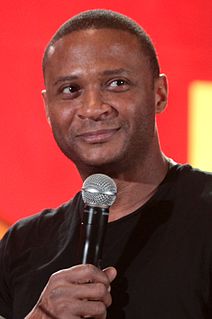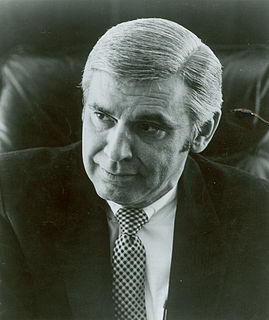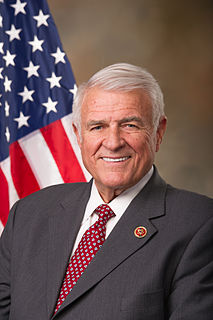A Quote by Samuel Freeman Miller
The United States being a limited form of government, one of the restrictions to which it is subject is in regard to its power to levy taxes. The States may levy them for a great many purposes for which Congress cannot, because to the States belong all of the powers not delegated to Congress.
Related Quotes
To hold that Congress has general police power would be to hold that it may accomplish objects not intrusted to the general government, and to defeat the operation of the 10th Amendment, declaring that 'the powers not delegated to the United States by the Constitution, nor prohibited by it to the states, are reserved to the states respectively, or to the people.
I consider the government of the United States as interdicted by the Constitution from intermeddling with religious institutions, their doctrines, discipline, or exercises. This results not only from the provision that no law shall be made respecting the establishment or free exercise of religion, but from that also which reserves to the States the powers not delegated to the United States. Certainly, no power to prescribe any religious exercise or to assume authority in any religious discipline has been delegated to the General Government. It must then rest with the States.
I consider the foundation of the Constitution as laid on this ground that 'all powers not delegated to the United States, by the Constitution, nor prohibited by it to the states, are reserved to the states or to the people.' To take a single step beyond the boundaries thus specially drawn around the powers of Congress, is to take possession of a boundless field of power not longer susceptible of any definition.
When you authorised Congress to borrow money, and to contract debts, for carrying on the late war, you could not intend to abridge them of the means of paying their engagements, made on your account. You may observe that their future power is confined to provide common defence and general welfare of the United States. If they apply money to any other purposes, they exceed their powers. The people of the United States who pay, are to be judges how far their money is properly applied.
Try this thought experiment. Pretend you're a tyrant. Among your many liberty-destroying objectives are extermination of blacks, Jews and Catholics. Which would you prefer, a United States with political power centralized in Washington, powerful government agencies with detailed information on Americans and compliant states or power widely dispersed over 50 states, thousands of local jurisdictions and a limited federal government?
President Barack Obama couldn't bring everything into existence through Congress. Because from the day that he was elected president of the United States, the United States Congress, many of the Republicans met, and they declared that they would never allow his legislative program to succeed. And for eight years they fought him.
Be it enacted by the Senate and House of Representatives of the United States of America in Congress assembled, That (a) the President of the United States is authorized to present, on behalf of the Congress, a gold medal of appropriate design to the family of the late Honorable Leo J. Ryan in recognition of his distinguished service as a Member of Congress and the fact of his untimely death by assassination while performing his responsibilities as a Member of the United States House of Representatives.
For states' rights advocates, the Constitution is like a contract that is openly violated by one party with impunity. On paper, the states remain sovereign powers, while in reality the federal government appears able to dictate everything from the ingredients of school lunches to speed limits. Congress now routinely collects taxes in order to return the money to the states with conditions on their conforming to federal demands.
































